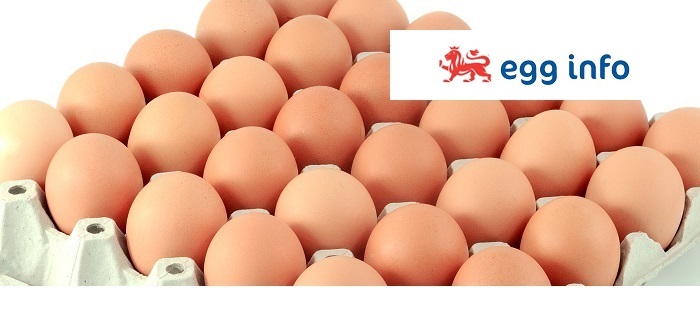Egg info, the British egg information service, has drawn attention to a new review and a meta-analysis which, between them, highlight the changing perceptions about the health benefits of eggs and provide “possible explanations” for the link between egg consumption and diabetes.
The review was published in the May issue of The Proceedings of the Nutrition Society and posed the question ‘Eggs-good or bad?’ The meta-analysis, which appeared in the June issue of the British Journal of Nutrition, reported significant disparity in the evidence from prospective studies to support an association between egg intake and incidence of type-2 diabetes.
“The review by Professor Bruce A. Griffin, Professor of Nutritional Metabolism at the University of Surrey, highlights how far the perception of eggs has changed, and that from a nutritional perspective eggs must qualify as ‘good’ due to their protein quality and high nutrient density,” said egg info. “It concludes that there is now general consensus that egg intake at moderate levels of daily intake has no clinically significant effects on CVD (cardiovascular disease) risk in the general population, and dietary guidelines have been revised accordingly.
“Evidence that eggs increase the likelihood of developing diabetes is inconsistent, and the association between eggs and increased CVD risk in diabetes is heavily confounded by a host of dietary and patient-related factors. What has become increasingly apparent is that patients with types 1 and 2 diabetes may respond differently to the cholesterol in eggs, creating the possibility that the association between egg intake and CVD risk may exist for one type of diabetes, but not the other.”
The meta-analysis, meanwhile, is reported to have identified study location as a major source of variation in the strength of association between egg intake and incident type-2 diabetes, with stronger associations being reported for studies conducted in the US, than studies conducted elsewhere. In addition, studies considered to be of high quality could find no significant associations between egg intake and incident diabetes.
“The paper concludes,” added egg info, “that the association of egg intake with increased risk of incident type-2 diabetes may be restricted to the US cohort studies.
“Also, because there is limited data to support a biological mechanism to explain this association, it is possible that these findings in the US populations may be linked to residual confounding produced by the dietary intake and behaviours of egg consumers.”


